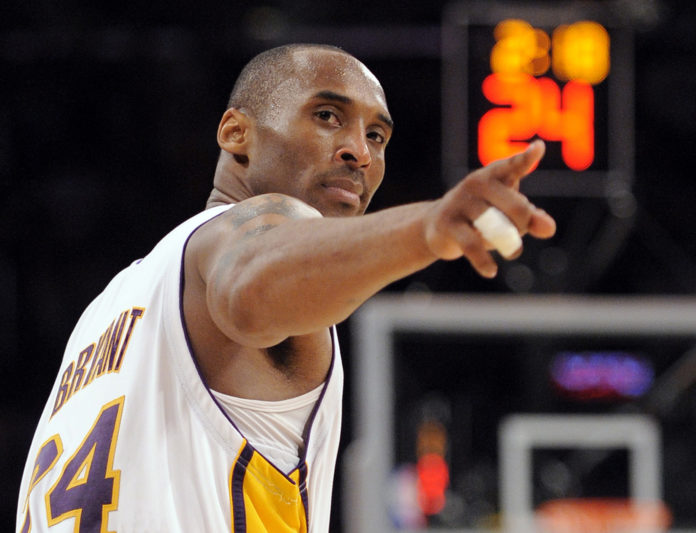
It still doesn’t feel real. Who would have thought someone who was invincible on the basketball court — the closest thing we have to a real-life superhero — could simply be gone because of the stroke of some truly terrible, evil luck?
What’s funny, in a horribly morose way, is that I fashioned myself as a Kobe hater through all my years of basketball fandom. Being from Houston, and a Rockets fan, naturally, all the years of heartbreak and pain that man caused me simply by being so incredibly good that he could dismantle a team by himself made me feel justified in my harsh criticism. It’s hard not to be bitter when your favorite team is single-handedly outclassed again and again. But there’s no way around it: the entire reason I even watch basketball today is because of Kobe Bryant, the man I loved to hate.
When I was 8 years old, my cousin turned the TV on, and there he was: a figure simply so great that an entire team had a game plan just to stop him, only him. The only problem was, the team that Kobe’s Lakers were facing in that 2008 NBA Finals series, the Boston Celtics, was on fire. As sports fans know, there are moments when a team just clicks, and the Celtics’ “Big 3” clicked. The ball bounced their way, the refs called in their favor, and it seemed they would not be beaten. But there he was, Kobe Bryant, losing by 39 points, staring into the face of sheer futility, refusing to blink. That’s what endeared him to so many people.
The man simply refused to quit. In any action movie, the protagonist moves mountains to accomplish their goal. That’s exactly what Kobe Bryant was to so many people, and what he accomplished so many times. He was a hero, though not without flaws that complicate his legacy.
I could have sworn I hated him, but at the end of the day, there I was, jaw on the floor, watching him move up and down the court with the silky smoothness and killer instinct that can only be truly described by his nickname, the “Black Mamba.” To so many people, Kobe Bryant was an idol. He was the high flying, fadeaway shooting, soul-crushing superhero. To me, he was an unstoppable villain that I simply could not take my eyes off of. Single-handedly, he was must-watch television.
What really stands out to me is how far past basketball his influence extended. The proof is in the people. Millions of people, from all continents, across all kinds of demographics, mourned the loss of this larger-than-life man. Athletes around the globe paid tribute to him by flashing a number 24, musicians dedicated songs, graffiti artists made murals, and fans put up memorials.
Yes, Kobe Bryant has a cult following. This he obtained in large part through being one of basketball’s all-time greats. But no small amount of his greatness is owed to the fact he stood for hard work, determination and grit. Kobe Bryant loved the game of basketball dearly. He loved the challenge of being one of the “best,” and so he worked until he was one. He was always in pursuit of excellence. That was his best trait, in my opinion.
It didn’t matter what he was doing, whether it was basketball, filmmaking, parenting, coaching, or being a friend. He was the best at all of it, leading the Lakers to five NBA Championships, winning an Oscar for “Best Animated Short Film,” leading his daughter’s basketball team to a 115-27 blowout victory that went viral on social media and embracing and mentoring the next generation of basketball stars.
His biggest challenge of all, though, according to a story by Kent Babb in the Washington Post, was fatherhood. Kobe Bryant was many things, but he was not one to shy away from a challenge. Bryant loved his girls more than he loved anything else.
“Just be grateful you’ve been given that gift, because girls are amazing,” he said. When asked what he would do if he and his wife Vanessa were to have another girl, he responded, “I would have five more girls if I could. I’m a girl dad.”
As ESPN’s Elle Duncan said, “I suppose that the only small source of comfort for me is knowing that [Kobe] died doing what he loved the most. Being a dad. Being a girl dad.”
As we continue on with our lives and move past this period of mourning, remember that life is short. Remember to call your loved ones. Remember to embrace your challenges, however large or small, and always, always, pursue excellence relentlessly.
Tony Muñoz Jr.
Sophomore
Statistics major





